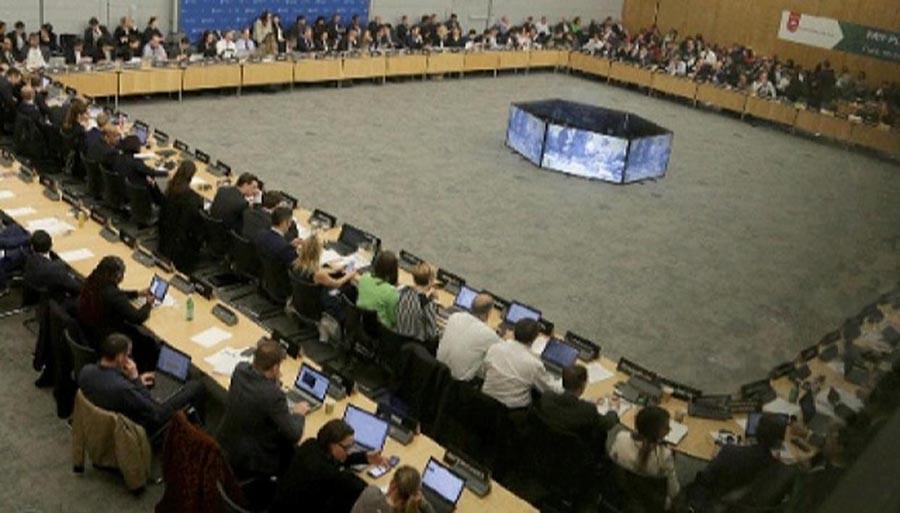
As things stand today, Pakistan is to make and present an action plan to the FATF in June. If the plan is accepted, it is fine, and if not, Pakistan being blacklisted is not outside the realm of possibility

After days of will we or won’t we, the matter has finally been settled: Pakistan’s being put on the Financial Action Task Force ‘grey list’ come June. Clearly, Pakistan was not expecting this outcome, and if one is to believe the press, the foreign minister’s premature tweet on having evaded the list may have played some part in the final decision, which saw two of Islamabad’s closest allies, Beijing and Riyadh, removing their opposition to Pakistan’s placement.
Regardless though, here we are.
And it’s not like this is alien territory. Pakistan has some history with the FATF and its lists. From 2012 to October 2014, Islamabad was part of the black list, while from February 2015 to October in the same year, it was on the grey list; June 2015 onwards, only under review and June 2018, grey list again.
However, during a recent television interview, Miftah Ismail, advisor to the Prime Minister on Finance, Revenue and Economic Affairs, said that "there is no chance of Pakistan being blacklisted again." He further added that "the grey listing means that Pakistan is under a monitoring and reporting programme, which is something we have been doing (reporting) for the last three years as well."
The advisor was also adamant that the FATF’s decision will make "no difference in the day-to-day business of industrialists, traders and shopkeepers," however, "when you go into the international market, issuing bonds and what not, it is an embarrassment (to be on this list)."
However, Dr Pervez Tahir, former chief economist of Pakistan, believes that Pakistan has returned on the FATF’s watch list because of continued inaction against certain banned groups and organisations. "We have not demonstrated our seriousness to the international community about controlling these groups."
What Dr Tahir is referring to are groups such as the Jamaat-ud-Dawa (JuD), the Lashkar-e-Taiba (LeT), the Harkat-ul-Mujahideen (HuM), and the Jaish-e-Mohammad (JeM), which, while being banned by the United Nations, were allegedly continuing to operate in the country.
However, only recently, Islamabad endorsed the UN’s list of banned organisations, and moved against the JuD and its charity wing the Falah-e-Insaniyat Foundation (FIF). Many saw this move as a precursor to the FATF meeting in Paris, and meant to make sure Pakistan did not make the grey list. Clearly, it wasn’t enough.
And to be fair, it seems that the ‘takeover of the JuD’ was merely an eyewash meant primarily for public consumption. As noted political scientist Ayesha Siddiqa told me last week, "The takeover was forced upon the government and there is collusion between them and the JuD to hide its infrastructure better under its garb."
"The problem right now is that Pakistan is in a political transition, and hence cannot take any concrete action," says Dr Tahir. "Once the dust settles, maybe somebody will be able to pin somebody down -- as things stand today, who does the international community even talk to?"
By the time the next FATF meeting comes around in June, a caretaker government will be in place, led of course by a caretaker prime minister. And with elections round the corner, the sitting government’s attention will be heavily diverted towards winning the polls.
But the question to ask is this, was the grey listing expected or did the tables really turn at the last minute as is being put forward by the government?
"We were repeatedly warned, first in February 2017 and then in November," says a senior counter-terrorism (CT) expert who requested anonymity. "Yet we did nothing -- the government must answer why."
But is it the government or the deep state that is calling the shots with regards to the groups in question -- after all, the action being asked of Pakistan is indeed organisation specific.
"At the heart of the problem is the dichotomy between the deep state and the civilian government -- the former is adamant that regardless of what the international community says, we will continue to use these groups against India and in other places as well," says the CT expert.
A source, privy to the developments in Paris, says the United States saw, in the pre-plenary session, that Turkey, Saudi Arabia and China were supporting Pakistan and these countries were then approached, with irrefutable evidence against the groups in question which then lead to them removing their opposition to Pakistan’s grey listing. When seen in this light, China’s claim that they did not want to "lose face by supporting a move that’s doomed to fail" takes on a new meaning.
According to the CT expert, the deep state has instead placed the blame of the Paris failure on a premature tweet by Foreign Minister Khawaja Asif in which he announced that Pakistan had successfully stayed off the grey list.
"If only such important matters were so easily swayed," he says.
As things stand today, Pakistan is to make and present an action plan to the FATF in June. If the plan is acceptable, then its implementation will get underway. However, if it is not, Pakistan being blacklisted is not outside the realm of possibility.
At the core of the problem, however, is will. Will to take action against groups that have long been a part of Pakistan’s strategic policy. As an expert in Washington told me, "We can’t keep dodging the bullet all the time."